Experience Reports PhD students
In our new format ‘5 questions for...’ PhD students give exciting insights into their everyday life at university. Don't miss any new stories and follow us on Instagram to stay up to date!
-
Shariga Sivanathan
What do you find most exciting about Information Systems?
For me, the most exciting thing about Information Systems is that we constantly deal with new technologies. The knowledge doesn’t become outdated, and we also work in an interdisciplinary way. That’s what I find most appealing.
What has been your most memorable moment during your doctoral studies so far?
The most memorable moment of my doctoral studies so far was the acceptance of a paper at the ICIS, the International Conference on Information Systems. It was also my first accepted paper, and the reactions and congratulations I received from the team, as well as from friends and family, made it the most defining moment up to now.
What are you currently researching, and what particularly interests you about this topic?
I’m currently conducting research on platform ecosystems, specifically, how they are built by entrepreneurs in the healthcare sector and how they evolve over time into full platform ecosystems. What’s important to me is the impact they have it has on our society, as digital platforms have already disrupted many areas of our lives. And how this power of innovation in healthcare, one of the most relevant areas of our society, can also create positive.
Do you plan to continue working in academia after completing your doctorate?
I started my doctorate with this goal in mind and would like to stay in academia. But especially to encourage many people with a migration background, as well as many women, to study Information Systems. And also to establish a foothold in this field, which is unfortunately still often dominated by men.
What information about the department would you have liked to know before coming to Münster?
What I wish I had known beforehand is the diversity of ERCIS. Which institutes are involved and what the international network is like. I would have liked to know more about this in advance.
You can also find the interview here: Reel: 5 questions for Shariga Sivanathan
-
Patrick Nguyen
How did you first become involved in the field of Information Systems?
By a rather indirect route: I was initially elsewhere, and then on my way back, when I returned again, my martial arts division leader happened to be on the same board as Professor Becker, and in the course of a conversation it was simply mentioned: ‘Hey, Information Systems might need a few people.’
What are your current areas of work or research?
Our current research focuses on the digitalization of public administration. Essentially, the question is how to derive conceptual models, such as process models, from laws in order to create greater standardization. The goal is to avoid situations where, while sitting at an administrative office, one wonders: ‘What am I actually supposed to do here?
Which tools or technologies do you prefer to use, and for what reasons?
I would, without hesitation, say the computer, since practically everything runs through it, from scheduling appointments, to writing papers, to communicating with others. Well, ordering coffee is not yet done through it, but apart from that, everything here depends on it.
Has there been a project or a milestone in your career to date that you are particularly proud of?
That is actually a difficult question to answer, because there are two moments. The first was, of course, my very first paper, which was accepted directly at the ECIS. The second was at a conference where, for a rather boring topic, I received the feedback: ‘It was absolutely boring, I nearly fell asleep, but you managed to present it in such a way that I was captivated the entire time.’ For me, that was the best feedback I could have received.
If you had the opportunity to resolve one technical problem in the world immediately, which one would it be?
The supply of electric power, because in some way everything depends on it. Whatever you need to do, it requires it. Even obtaining food depends on it. And if you want to conduct research, you also need it.
-
Sebastian Reiners
When did you realize that you wanted to work in Information Systems?
That was at the end of my bachelor’s degree, in a project seminar. We ran a simulation of diseases and pandemics. Working together in a team with different people, with this mix of technical expertise and understanding the problem, was so much fun for me that, in the end, I said: “Hey, I could imagine doing this for the rest of my life.”
What would you have liked to know about the institute before coming to Münster?
How much potential actually lies in the exchange and collaboration with the other chairs. In the beginning, I did a lot of things on my own or only within my own chair, even though we were all working on topics that were really closely related. It was only toward the end that I realized how much potential there really was. I wish I had known earlier how much collaboration is actually possible.
What was your greatest achievement in science?
That was the collaboration with the Chair of Organizational and Business Psychology here at the University of Münster. We worked together on a project for over three years and the fact that we were able to learn so much from each other and exchange ideas continuously, and that we ended up understanding both disciplines better, I think that’s the greatest achievement I’ve been able to reach in the past few years.
What are your next plans or goals moving forward?
After more than ten years at the University of Münster, I’m now going into the business and also leaving Münster. I’m probably be heading to Hamburg – nothing is signed yet, but so far I can definitely say from the application processes that the profile of an Information Systems specialist is well received.
Do you have a favorite memory from your time at the department?
That was after my defense of my dissertation, on a Friday afternoon. We met up with a lot of people from the department who had been with me over the past few years and who had already left. We had a barbecue, some drinks, and the evening went on for quite a while. It was a beautiful, mild summer evening, and a really perfect way to wrap things up - it was just a lot of fun.
You can also find the interview here: Reel: 5 questions for Sebastian Reiners
-
Sandro Franzoi
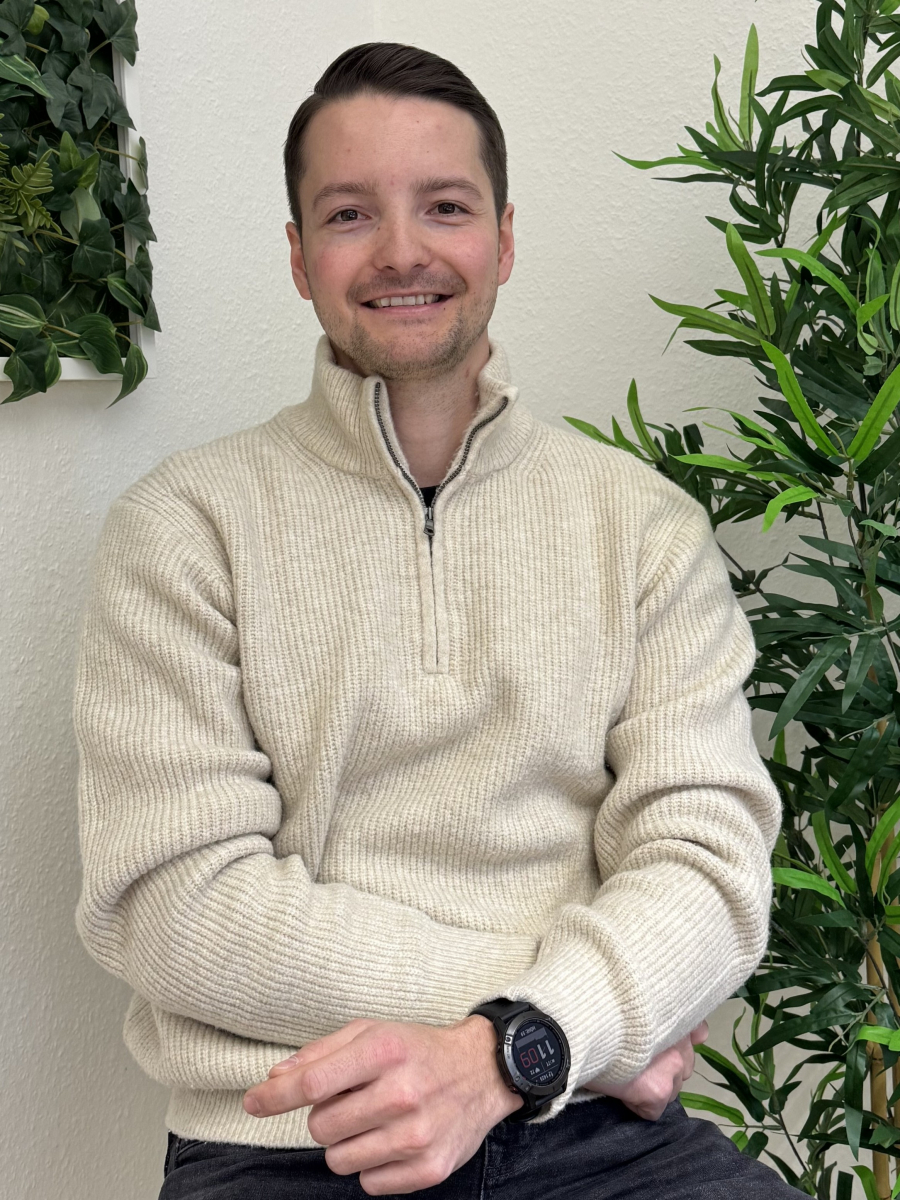 Why did you choose the Department for Information Systems in Münster?
Why did you choose the Department for Information Systems in Münster?
I actually came here to Münster together with Jan vom Brocke from the University of Liechtenstein, which was also a cool opportunity for me personally to learn something new.
What are you currently researching and what fascinates you most about your topic?
My research mainly revolves around processes and how they change over time. I often use computer-based methods such as process mining. What I think is so cool about this is that you can use data-driven transparency in process improvement.
Would you like to stay in science after your doctorate?
I could very well imagine staying in science after my doctorate, because I really enjoy research at the moment, and I can also imagine doing it in my future.
What does a typical working day as a PhD student look like?
For me as a PhD student, a typical working day mainly involves research and teaching in addition to my chair duties. In research, it is a lot of reading, writing and lots of coffee and in teaching, it is mainly lectures and project seminars, which is great fun.
What skills or qualities should you have for a doctorate?
Skills that certainly can't hurt in a doctorate are, on the one hand, self-discipline, because you simply have to manage your time to get things done. On the other hand, resilience, because you also have to deal with setbacks from time to time, as not every day can always be great.
You can also find the interview here: Reel: 5 questions for Sandro Franzoi
-
Melanie Schmidt
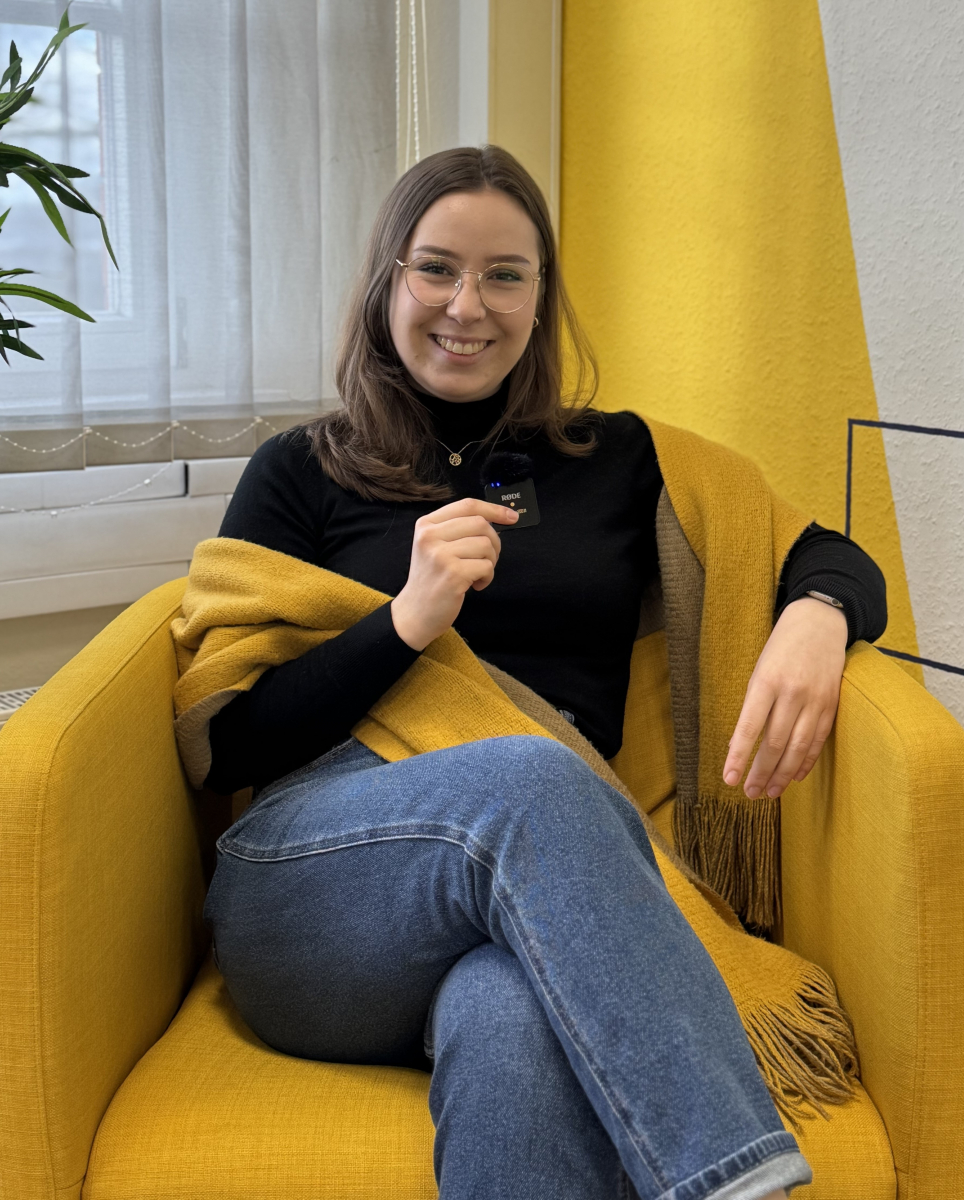 When did you realise that you wanted to work in the field of Information Systems?
When did you realise that you wanted to work in the field of Information Systems?
I realised that Information Systems was right for me after I graduated from high school. I enrolled straight into the bachelor's programme and had no idea at that time how deep I would actually delve into it and the more I learned in the bachelor's, master's and even now, the more I realised that it was totally my thing.
Why Information Systems and not pure economics or pure computer science?
At the beginning, I was focused on the computer science part, but then I realised straight away that it is not really an either/or, but that Information Systems is a completely separate, fascinating field and is exactly the field I find exciting.
What has been your greatest success in your academic career?
My biggest success is definitely all the positive feedback from my students. After courses or after final theses, quite a few have taken the time to tell me again that they like my way of doing things or that they have taken something away with them. That simply means an incredible amount to me because it shows me that I can make a small difference for that person.
Would you like to stay at the university after your doctorate?
First of all, I think it is basically super cool that so many doors are open to me: in the direction of practice or science. At the moment, I'm not sure whether I will stay in academia. But I really enjoy being part of the community.
What do you wish you had known about the Department of Information Systems before you came to Münster?
I would have liked to have known earlier how many varied programmes there are at the department. There are so many impressive opportunities to organise your own studies here and if I had known that earlier, I might have come to Münster sooner.
You can also find the interview here: Reel: 5 questions for Melanie Schmidt
-
Nina Herrmann
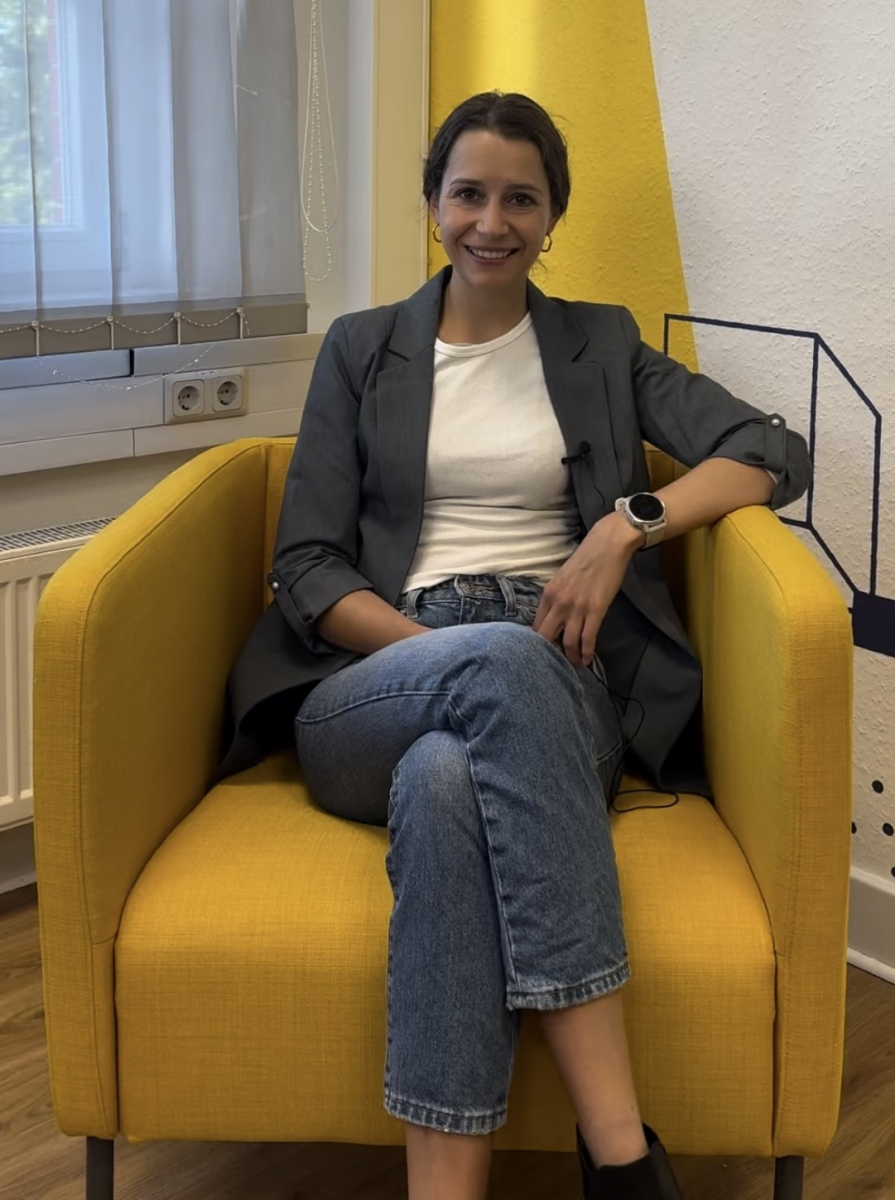 When did you realise that you wanted to work in the field of Information Systems?
When did you realise that you wanted to work in the field of Information Systems?
I realised during my studies for the first time that I really enjoyed it. Before my studies, I was quite good at economics and also really liked computer science. However, during my studies and especially in the phases where you start to apply your knowledge, I realised that I really feel comfortable with what I am doing here.
What do you wish you had known about the Department of Information Systems before you came to Münster?
I also did my bachelor’s degree here in Münster and what I really have liked to have known in the first semester is that there is a very large archive of exams you can use to prepare yourself really well.
What was your greatest success in your academic career?
I handed in my doctoral thesis in June 2024, and it encompasses everything I have been doing for the last four and a half years. Therefore, that is definitely my biggest achievement.
Why do you want to stay at the university?
I have really enjoyed both the research and the teaching and as I have the opportunity to stay here, I wanted to see where my path takes me next.
What advice would you like to give students for their future time at the department?
I would advise you to always look for topics that excite you and that you also see a purpose in, because the easier it is to get involved with them.
You can also find the interview here: Reel: 5 questions for Nina Herrmann
Here you can find other reports on the experiences of PhD students and research assistants at our department.
-
Lea Püchel
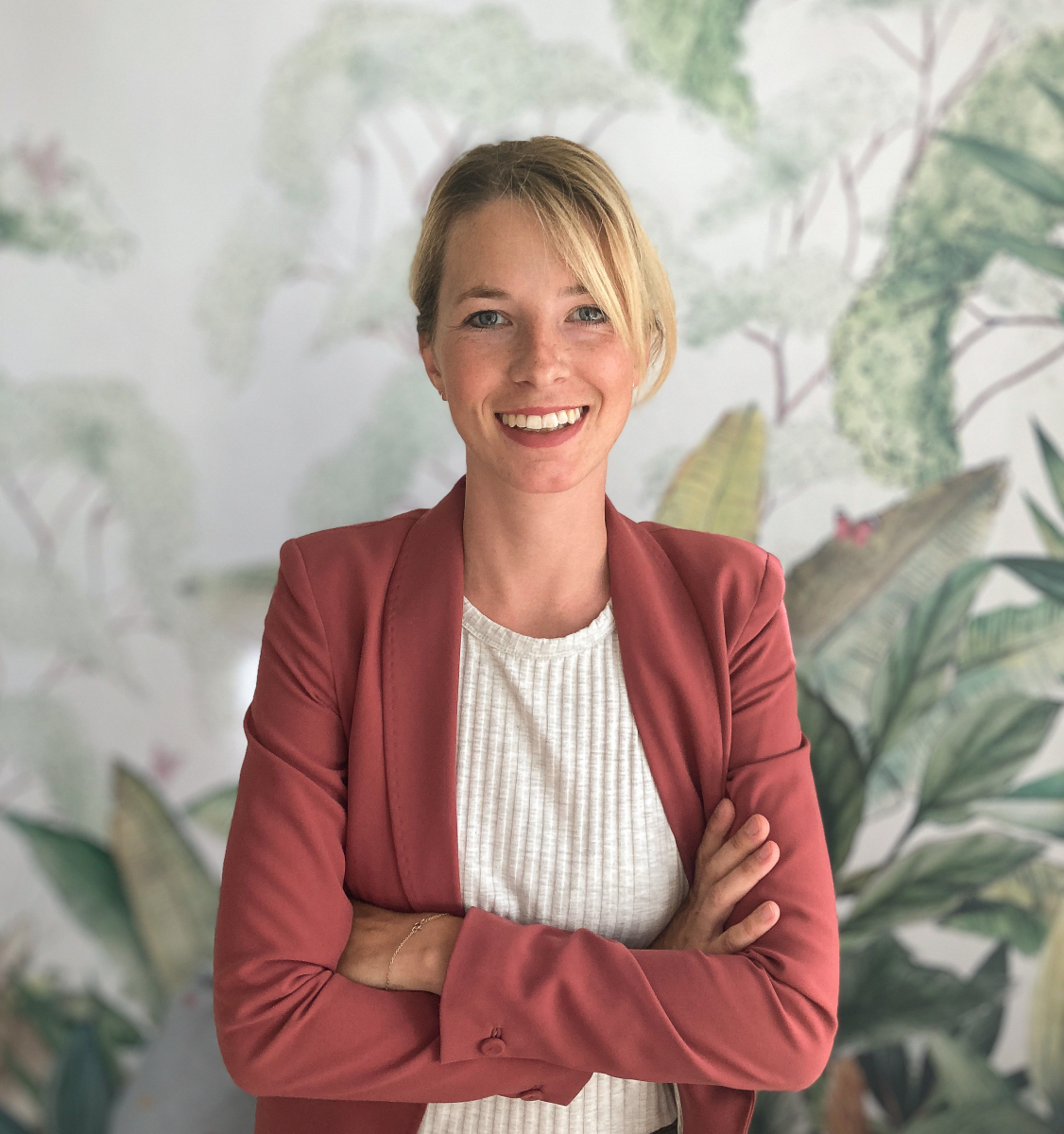 Since when have you been working at the Department and what is your field of activity?
Since when have you been working at the Department and what is your field of activity?I have been working at the Department since September 2022 and am employed as a post-doc or assistant professor at the chair "Digital Innovation in the Public Sector", which is headed by Tobias Brandt. My activities include teaching, research and the transfer of research projects to the public. I also have the project "Digital Innovation in Sustainability". I create „Open Educational Resources“ on issues of how digital innovation and sustainability are related and how digital innovation can contribute to sustainability and sustainability to digital innovation.
What was your academic and professional career like?
I was lucky enough to be able to study internationally in my bachelor. I studied politics in Toronto, which was a great undergraduate for me, to get a general overview of political contexts. In my master's program, I focused on technologies and studied technology management. I then continued with my PhD at the University of Cologne and did a PhD in business administration, but with a focus on technology management. In between, I worked both as a freelance journalist and in the management of a larger publishing house. But at the end of the day, I decided to go back to college because I just like the work here. I really like thinking through certain topics and working with students. That appealed to me, and that's why I came back to college.
What was the topic or research area of your PhD?
I focused on how the digital transformation in media companies, specifically in journalism companies, can be shaped in a way that it is economically viable for companies. Journalism companies in particular are, on the one hand, incredibly important to our democracy, and on the other, not doing very well economically. So it was very exciting for me to investigate.
What other reasons made you decide to do a PhD?
It appealed to me to go into depth with knowledge and to examine strategically what I have done in practice in my profession. I really enjoy working in depth on certain issues. Another reason was that I saw the use of technologies in my hands-on experience. But I often had ethical questions about whether it is being used correctly in business. In this context, I thought that I would be better able to question this at university.
What does a typical working day at our department look like?
There is no typical working day, as it also depends on whether or not we have lecture time. During the lecture period, the exchange with students is in the foreground. During the semester break, the focus is more on research and writing papers. In addition, I exchange ideas intensively with partners who are participating in my studies. As I do qualitative research, I get to know a lot in interviews and can also look into companies and organisations or the public sector with which I am in regular contact. The insights I get are very exciting and make everyday work varied.
What do you like most about our department?
What is unique about this department is that everyone pulls together and works collaboratively. With everyone's thirst for knowledge, we can show and understand how people and technology can work together in the best possible way. I have already had the chance to look into some departments and appreciate the collaborative work in business informatics.
Do you have any tips for current students who are considering doing a PhD in Information Systems or who are about to start their careers?
With Information Systems at your side, you can move forward confidently, take critical thinking with you and hopefully apply it. Otherwise, I wish you courage, confidence, serenity and a great sense of adventure.
-
Valerie Tan
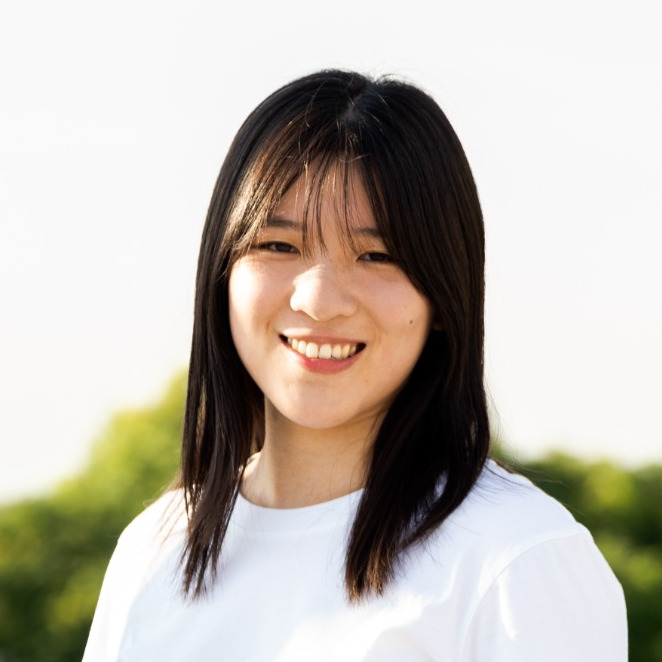 What is your area of research?
What is your area of research?I'm a PhD student at the Junior Professorship for Digital Transformation Society. I started this position as a research assistant and graduate student a little over a year ago. As I am still quite new, I have only recently narrowed down my general dissertation topic to be about distributed AI in organizations. This is a new paradigm that is different from how many AI models and machine learning algorithms are trained these days. Instead of putting all the training data in a centralized place, I want to look at how it can be processed in a distributed way that preserves the data’s privacy, and see how that affects organizations and how they work together. The general area of research is distributed AI, and I'm interested in how that's going to change a lot of things, especially in the EU.
I'm planning some empirical studies right now. And that is of course a lot of work. Just to get started—there's a lot to think about, consider and learn. I'm hoping to submit some papers to conferences in the future, and it would be very nice to even publish in some top journals. That is always a big goal, but you have to aim high, so that is of course an aspiration.
At which universities did you study before and what made you decide to do a PhD?
I grew up in the US—I'm American, so I did my undergraduate degree in Computer Science at Cornell University. I took German classes there and was interested in going to Germany. After I graduated from Cornell, I went to RWTH Aachen and did my master's in Media Informatics, which was a lot of fun. The program I was in was pretty unique because it had a partnership with the University of Bonn.
After that I still wanted to do research! I worked as a student assistant at the Fraunhofer Institute and really liked the research spirit there. It was about augmented reality, about these new technologies and researching what was coming up. I found that really interesting, and I wanted to do more of that.
Why exactly are you doing your PhD at the University of Münster in Germany? Why did you choose the Department of Information Systems?
I decided to do my PhD in Germany because PhD programs in the US are very different. A PhD program in the US sort of includes a master's degree portion, which I already did in Germany, so it doesn't really make much sense to start a PhD in the US and do that again. And I really liked living in Germany. So that's why I wanted to do it in Germany.
The reason for the Department of Information Systems in Münster was that I had been to Münster before and I thought it was a nice city. Then one day I saw this position online about a PhD position in Münster with a digital transformation topic. And I thought it was perfect, so I applied and I'm really happy to be here.
For whom do you think this PhD program is suitable?
People who want to do a PhD should first be interested in doing research. It doesn't mean that you have to love research more than working in the industry. You can love both. But if you really want to do research, you should do it. Depending on what kind of PhD you do, a lot of them, like mine, require you to teach, so if you want to do some teaching as well, this is perfect. This is a really good opportunity to do research, to think very deeply about your topic and also about many other topics or fields, subfields, and research directions. You get to learn a lot and you also get to work with various people in many different ways.
What is a typical working day like for you?
Especially with the energy crisis, I'm doing a lot more hybrid work. So it varies whether I'm at home or in the office. But the thing that's always the same, no matter what I'm doing, is that I usually start my day with a cup of tea. Other than that, as a graduate student and researcher, I usually have a lot of hats on, and depending on which hat takes priority, I have to pick and choose which hats to wear and work on. Especially in the first year, there were days when I was doing mostly or all teaching related activities: preparing, teaching, grading, administrative work. Then there's the research aspect, which requires a lot of reading, organizing, and thinking. What is really unique about the School of Business and Economics is that we also have structured PhD programs. There you have a relatively small number of courses that you have to take. This is really helpful for a PhD student and is a big plus. Another part of my day is meetings and some other logistical tasks. My day is usually a combination of all these things and it also depends on the time of the year and the time of the semester.
What do you like about working at the Department of Information Systems Münster?
It's a great variety of people, there are so many of us and you can really talk to so many people and learn something new about others or about their research. And that helps you a lot with your own research. We have a very good research-oriented attitude. The department really wants to help us be successful. This semester I took a course on qualitative research methods. I already knew some things, but getting an overview of qualitative research, for example, is really helpful. I feel lucky that I can just sit in class and finally put it all together. In my group, we're really open to different lines of research, and I think that's really nice. As a PhD student you can find the topic that suits you best and we all combine our strengths in the group.
What do you like most about working in Münster?
I like biking! It is a big thing for me to be able to just ride my bike from point A to point B to point C without worrying about getting hit. I also like the Promenade—its separated bike lane is nice. I didn't have that where I grew up, so that's something new to me and I love it! And then there's also a lake, and a canal. All those things are great working conditions.
Information systems often seems to be a male dominated field of work and research. What motivated you as a woman to become an academic in information systems?
I think it starts in the very beginning. I'm very lucky that I'm from a science-oriented family. My parents are both engineers and they've always encouraged my older sisters and me to be interested in the MINT subjects. I was really interested in it when I was young and it was well understood that these fields are male dominated. What really helped was that my parents, family, friends, teachers, and a lot of people, were always actively encouraging me to study and pursue these fields. That helps a lot, to have people who believe in you. It really makes a difference. So even though there are a lot of men in the field, there are a lot of women and also men who have supported me, who don't have an issue or don't think of me too differently because I'm a woman.
Do you have any other tips for future students, applicants, or just people thinking about going into STEM fields?
I have this story: When I was in 8th grade in the US, I had to sign up for electives in school and I signed up for a course on game programming. I had this class and there were 19 students, our teacher was a man and I was the only girl in the class. I was so intimidated, but looking back, it wasn't bad. Especially the people sitting next to me were super nice and really fun. I guess the idea is that it's normal to feel out of place when you're the only one or one of the few. But it's going to be okay, there might be some difficulties, but it's something you should be proud of.
The other thing is that I used to have this idea of what my life would be like when I got my life together. But the reality is that you don't have to have this perfect ideal that you have to achieve. Life, and especially research, is about doing your best to make progress. When I was younger, I was hoping for a future-me who has her life together, who can organize and handle everything perfectly. It's okay if you don't feel like you're there yet. It doesn't mean that you'll never improve X, Y and Z. The only reason you shouldn't do a PhD is if you're not interested in the tasks involved.
Do you already have an idea of what you want to do after your PhD?
Yes, but I'm not 100% sure. There are a lot of very nice research roles. I could work in the industry, or I could continue on a more university-based academic path such as doing a postdoc. Another option is to work for a research institution. I'm still considering the pros and cons. In general, I like to be open to a lot of options, and I still have time.
-
Sebastian Reiners
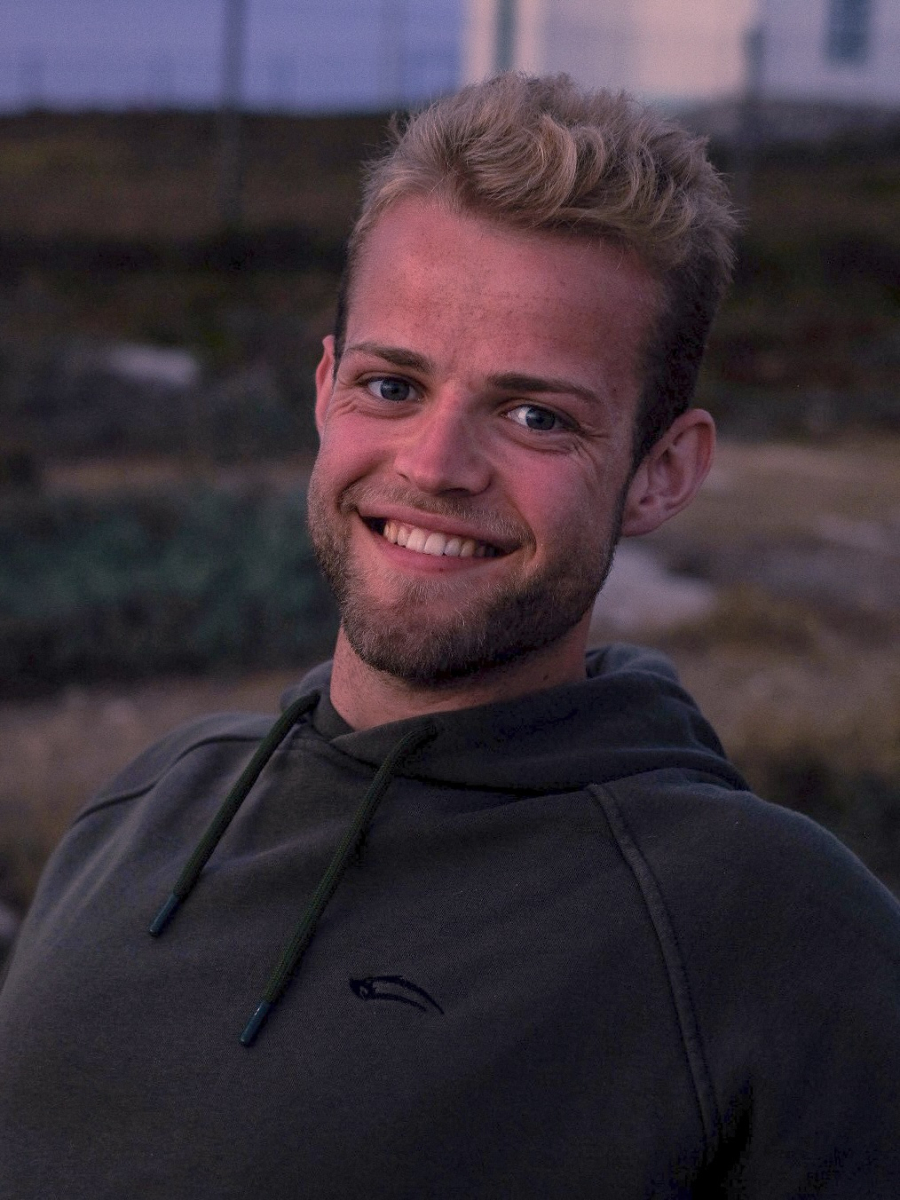 What topic are you doing your PhD on?
What topic are you doing your PhD on?I have been working on an interdisciplinary research project at the department for over two years. It is a Germany-wide DFG research project in which the University of Münster is involved together with Information Systems and Organisational and Business Psychology. We are working in an interdisciplinary way to analyse the role of trust in information systems. In doing so, we are looking at how to deal with the large amounts of data that we have so much of these days. We are investigating how the phenomenon of deliberate forgetting can be used to help people in their work context and release cognitive resources through information systems. It is already clear from this description that, on the one hand, the information technology side of systems plays a role and, on the other hand, the psychological and cognitive side.
What results have you already been able to achieve?
The project already exists for a while, people have worked on it before me. There are two project phases in total, the second of which is coming to an end at the end of July. They will now be concluded with a final presentation of the Germany-wide project. All eight tandems will come together and present their results. During the course of the project, there were also regular intermediate presentations where we met and exchanged information. There are already results from the first project period. Over the past two and a half years, we have now put these into practice and looked at how much truth there is to this theoretical construct or whether there are perhaps other constructs.
At which university did you study beforehand? For what reasons did you then decide to do a PhD?
I did both my Bachelor's and Master's degrees here at the University of Münster. When I completed my Master's degree, I was still relatively young and didn't yet have the ambition to work in the private sector for the next 40 years. At the same time, I had the feeling that the university had not yet taught me everything it could teach me. This combination led me to consider a PhD and the feeling that the university had not yet given me everything I needed was the decisive factor in the end. Another important factor was that I already knew the people who worked here and wanted to continue working with them.
Why exactly are you doing your PhD at the University of Münster and at the department of Information Systems?
It was very easy to stay at the University of Münster. When I was thinking about a possible PhD during my Master's degree, I had a conversation with Prof. Becker and another professor in which they showed me the possibilities of a doctorate. Ultimately, the deciding factor for me was that I knew what kind of construct I was entering here, what kind of working methods I could expect and that I felt very comfortable in this way of working. I had already been told that I could start here before completing my Master's degree. I was also already familiar with the thematic focus of the project and very interested in interdisciplinary research. I wanted to work in a context that I had no idea about before.
For whom is a PhD suitable?
It depends a lot on the institute and the department, as they all work very differently and have different requirements. In this department in particular, there are very different cair, for example those that are very computer science orientated or those that are very quantitatively orientated. It also depends on the seniority of the departments: Prof. Becker has been there for a very long time and has very established structures, a young chair has different requirements.
If I want to generalise: You need a very high degree of flexibility. You have to be prepared to do things that you don't know anything about and you have to become familiar with them as quickly as possible. If you can't do that, you will reach your limits in many areas, because there are a lot of imponderables in the course of a PhD that you can't know beforehand and that you only learn about afterwards. You definitely have to be willing to learn a lot of new things.What does a typical working day look like for you?
My working day depends very much on whether lectures are taking place or not. The lecture period is relatively restrictive due to the teaching activities that you do parallel: giving tutorials, supervising seminars, supervising specialisation modules, etc. This means that you are very busy. Outside of the semester periods, you are more flexible in the way you work, so you have a lot of time for things that are more difficult during the semester. You tend to have writing phases in which you can work very specifically on your topics and write your dissertation or paper. In the semester, my mornings are divided into so-called focus work time, which means that I postpone all my appointments to the afternoon and then have 3-4 hours in the morning to work on something with as much concentration as possible. In the afternoon, I prepare and hold appointments and meetings, , I teach, etc.
What do you particularly like about working at the department?
I have a lot of freedom in what I do. Of course, I have tasks that have to be done, but if I manage to finish these tasks in a certain amount of time, I have "free time on the job" to do things that I feel like doing. For example, I can then offer seminars that interest me. I really enjoy working on topics which help the department and the students. I really, really like the freedom I have here at the moment.
What is your favourite thing about Münster?
I enjoy the majority of the people who live in Münster. I feel like you always meet people here with whom you can spend a nice day. Münster is divided into different neighbourhoods: There's the harbour, which is more alternative, then there's the very classic area around the cathedral square and then there are the student areas. In front of the castle, for example, what feels like 100 students play spikeball in summer and ruin the beautiful lawn with their studded shoes, but somehow everyone thinks it's a good thing. Münster manages to be a kind of bubble. When you come to Münster, everything is good and fine, and as soon as you leave Münster, the world is no longer in order. That's an exaggeration, of course, but that's what I like about Münster.
What are your plans after you complete your PhD?
I find it difficult to anticipate more than two years into the future, but of course you have certain ideas about what you might enjoy doing. Personally, I see myself in the role of a product manager, at least what I imagine that to be. Of course, it's always difficult to imagine what it's like in business when you've spent almost eight years at university. But what I hear from former fellow students is very exciting and I can imagine heading in that direction. However, this also means that science will not be my future career path. That's also because, when I started my PhD, I felt that the University hadn't taught me everything yet. I'm slowly starting to feel that I've learnt what I wanted to learn here and everything beyond that is no longer my passion. I'm super happy here, having a great time and will enjoy the next one and a half to two years ahead of me, but I wasn't born for science. The career path as a scientist isn't attractive enough for me and there are too many imponderables that I can't influence. In many places, these imponderables have a negative impact on the good things about science.


